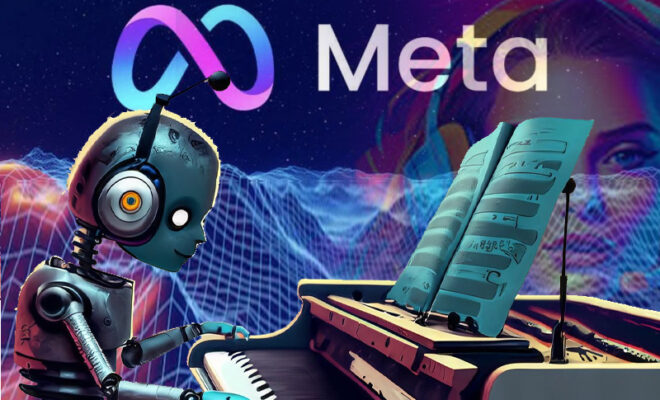Meta’s AudioCraft AI: Now Anyone Can Become Professional Musician

Meta, the parent company of Facebook, has unveiled a new AI tool called AudioCraft, which can generate high-quality audio and music from text prompts. The tool consists of three models: MusicGen, AudioGen, and EnCodec, catering to musicians, content creators, and researchers.
MusicGen allows musicians to experiment with new compositions without needing to play any instruments. It is trained on Meta’s music library and licensed music.
AudioGen, on the other hand, is trained on public sound effects and enables users to create various environmental sounds and sound effects, like barking dogs or honking cars.
The new enhanced version of EnCodec promises better quality music generation with fewer distortions.
The tool’s availability allows researchers and practitioners to access the models and even train their versions using personalized datasets.
AudioCraft serves various purposes: professional musicians can use it for inspiration and quick composition iterations, while small business owners can add high-quality soundtracks to their promotional videos.
As an open-source technology, it encourages collaboration and empowers developers to create innovative sound generators, compression algorithms, and music generators.
Meta envisions MusicGen becoming a new form of instrument, similar to the impact of synthesizers.
The company believes this advancement holds immense potential for the future of audio and music production, transforming the way sound is created and perceived.
With AudioGen, users can generate a wide range of sound effects and environmental sounds based on text prompts. Meta is releasing pre-trained AudioGen models to facilitate this capability.
ALSO READ: YouTube Launches New Tools For Creating YouTube ShortsYouTube Launches New Tools For Creating YouTube Shorts
The AudioCraft tool family aims to simplify the design of generative models for audio and make them accessible to a broader audience.
By making the models open source, Meta intends to contribute to the advancement of AI-generated audio technology and foster innovation in the field.



